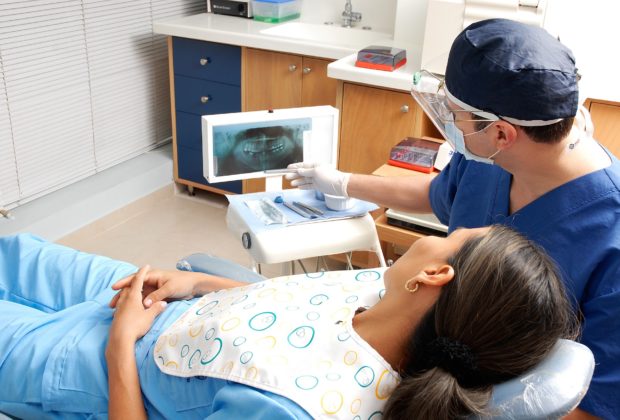If you have been looking for ways to expand digital marketing for your dental practice, the term SEO must have come up either during online searches or recommendations from other dentists.
Search engine optimization refers to a set of strategies that help your website rank higher in the search results. Why should your website always appear at the top of the search results? For some of the marketing benefits briefly discussed below:
- Quality Traffic: SEO is effective as a marketing tool because it takes your website, products, or services to people who are searching for exactly that. This translates to quality leads and possible conversions. BigCommerce cites SEO as the top three sources of online traffic.
- Brand Exposure and Awareness: When people see your dental practice among the top search results every time they have a tooth problem, your name is likely to stick with them. The authority and trust created by such rankings may compel them to try your services next time.
- SEO Enables Small Brands to Compete with Market Giants: That’s right. Whether you just opened your practice two weeks ago or have been in the game for decades, optimizing your content puts you above the others.
- Increased Conversion Rates: Because SEO brings in more quality traffic, their chances of stopping by and even booking a dental appointment are high. Fifty-Nine percent of online shoppers do their research and comparison on the Internet before making a purchase decision. If you appear consistently in searches like “dentists near me” or “tooth filling”, a prospective client is more likely to trust your business.
When talking about SEO and its determining factors, most marketers will refer to Google because it is the most popular search engine of them all. However, Bing and Yahoo also receive a significant share of online searches. While their SEO algorithms are not so different, where you want to rank will depend on the platforms that your prospective customers use.
Starting Dentist SEO Marketing Campaigns
Expert marketers understand that a successful SEO campaign is multifaceted and takes time. This means many factors come into play for it to yield the desired results. For instance, search engine crawlers may take a while before they can find and index your site or blog posts.
Let’s look at what SEO campaigns for dentists entail:
Auditing the Website
For a website to rank higher on search engines, there are several factors that the web developer and designer have to get right.
First, how long is the loading time after a prospective customer clicks on your site? Search engines prioritize sites with faster loading speeds. Second, how well does the site perform on both a desktop and a mobile device? With the increased use of mobile phones, search engines are prioritizing responsive websites and blogs. Finally, how is its overall appearance? This can range from things like the choice of font, colors used, placement of calls to action, images, and so on.
Technical SEO optimization will also look at how easy it is for web crawlers to find your site.
Keyword Search and Insertion
This is an important part of creating SEO campaigns for dentists because, without the right keywords, search engines will not match you with your prospective clients’ searches.
Keywords are the phrases and words that visitors use to find something on a search engine. This process begins by first highlighting all the important keywords you can think of that pertain to your practice, specializations, services, location, and skills. Next, the keywords are filtered for the most relevant and high-performing ones using readily available keyword tools.
Terms such as cost-per-click, search volume, and keyword difficulty, often used by these tools, might be a little intimidating. But you do not have to do it alone; ApricotDental can find the ideal keywords for your practice and insert them naturally in important areas such as URLs, metatags, titles, meta descriptions, and so on.
Creating Content
Content is an important part of SEO. Website visitors rely on your content to learn about services, find important information, and the next actions to take.
For written content, ensure that you include relevant keywords while being mindful of keyword stuffing. Next, create quality content that answers the leads’ questions about your practice and their problems. Remember also to revise your content regularly to ensure that it is fresh and up to date.
Optimizing for Local SEO
Ranking higher on search engines is great, but it does not mean much if you are not on local search results too. Since most dental services require a check-in, people who are looking for your services are generally within or near your practice's locality.
Local SEO optimization strategies target the geographic areas from which you operate. A marketing expert will include your locations in the copy, URLs, and titles; register your dental practice on Google Maps; and find other genuine local online directories to list your business.
Online Directory Auditing
Web or online directories are websites where businesses list their details like name, address, location, phone number, services, descriptions, operation hours, directions, and so on. When a user performs a local search for dentists or related services, these details show up among the top results.
Your business can also show up on online directories without your having claimed a listing. Auditing will involve checking such listings and correcting any inaccuracies. It is also important to ensure that your information matches across different platforms because this prevents confusion with the search engine and proves that you are a genuine dental practice.
Backlink Analysis and Link Building
Backlinks are an important part of SEO. They show authority and allow search engines to trust your content, thus ranking your website at the top.
A backlink analysis audits the current websites that link back to your site and removes the ones that can hurt your SEO efforts. These include purchased links and those from untrustworthy sources.
A digital marketing expert will also implement linkbuilding strategies that are ideal for your practice, such as sharing content on social media, designing clickable infographics, and guest blogging.
Final Steps
After creating an SEO campaign for your dental practice, the content will begin appearing on search engine results, depending on the web crawlers’ accessibility to your website.
Remember to monitor your SEO campaigns constantly to identify what is working and what is not. Additionally, update your campaigns regularly to stay in line with search engine algorithms because they change from time to time.









